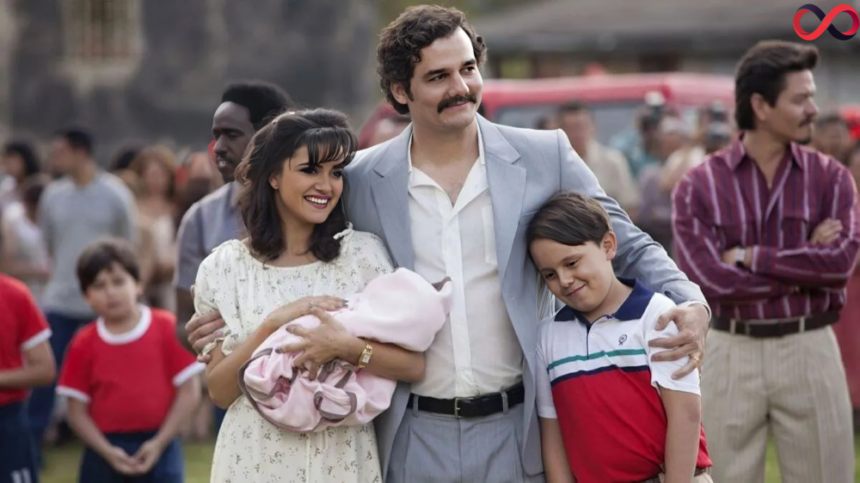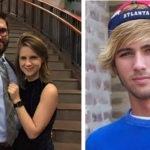Manuela Escobar is a name that has captured the interest of many due to her unique life circumstances. She is the daughter of Pablo Escobar, the infamous Colombian drug lord and leader of the Medellín Cartel. Born into a world of unimaginable wealth, power, and controversy, Manuela’s life has been shaped by her father’s legacy, leading her down a unique and secluded path.
Early Life and Background of Manuela Escobar
Manuela Escobar was born on May 25, 1984, in Colombia to Pablo Escobar and Maria Victoria Henao. Growing up, Manuela lived a life of luxury, as her father’s cartel was generating millions of dollars per day. The Medellín Cartel was responsible for the majority of the cocaine trafficking to the United States in the 1980s, and Pablo Escobar became one of the richest men in the world due to his illegal activities.
From a young age, Manuela was her father’s “little princess.” Pablo Escobar spared no expense in pampering his daughter, fulfilling her every desire. Stories of his extreme gestures toward his daughter’s happiness, such as burning large sums of money to keep her warm during a night on the run, have become legendary. For Manuela, life was far from ordinary. However, as Pablo’s empire crumbled under pressure from the Colombian government and rival cartels, the Escobar family faced an uncertain and often dangerous future.
The Death of Pablo Escobar and Its Impact on Manuela
Pablo Escobar was killed in a police shootout on December 2, 1993. His death left the Escobar family vulnerable and under intense scrutiny. In the wake of Pablo’s passing, Maria Victoria Henao, Manuela’s mother, took Manuela and her brother Juan Pablo (now known as Sebastián Marroquín) into hiding. They faced legal issues and social stigma due to their connection to Pablo Escobar’s criminal empire.
Fleeing Colombia, the family lived in multiple countries, including Ecuador, Peru, and Brazil, seeking asylum. Eventually, they settled in Argentina under assumed identities, attempting to escape the legacy of Pablo Escobar. For Manuela, the loss of her father marked the beginning of a lifelong journey away from her turbulent past. Despite attempts at a normal life, the Escobar family’s history would remain a constant shadow.
Manuela’s Life in Argentina: Living in Seclusion
Settling in Argentina provided the family some relief from the dangers they faced in Colombia. Manuela was able to receive an education, but her life was far from conventional. Due to her family’s notoriety, she has led a life of anonymity, avoiding media and public appearances. Her brother Juan Pablo chose to face their family’s past by speaking publicly about his father’s actions, writing books, and giving interviews under his new identity, Sebastián Marroquín. However, Manuela has taken the opposite approach, choosing silence and privacy.
Unlike her brother, who has built a career as an architect and author, Manuela lives a reclusive life, avoiding the public eye. She reportedly struggles with the psychological impact of her father’s violent legacy, suffering from bouts of depression and anxiety. Manuela has rarely given interviews or made public statements, preferring to stay out of the limelight.
Manuela’s Relationship with Her Brother, Sebastián Marroquín
Sebastián Marroquín, Manuela’s brother, has taken a proactive stance in reconciling with their family’s past. He has written several books, including Pablo Escobar: My Father, where he shares intimate details about their life growing up under the shadow of the Medellín Cartel. Sebastián’s public approach stands in stark contrast to Manuela’s preference for privacy. Despite these differences, the siblings reportedly share a close bond.
Sebastián’s approach has aimed to shed light on the human side of their father, acknowledging both his atrocities and his affections as a father. Manuela, however, refrains from participating in these discussions, underscoring her desire to remain disconnected from her father’s public image.
The Psychological Impact of Being Pablo Escobar’s Daughter
Growing up as Pablo Escobar’s daughter has had profound psychological effects on Manuela. While she enjoyed a life of privilege and protection under her father’s care, her world turned upside down after his death. Reports suggest that Manuela has faced mental health challenges, including post-traumatic stress disorder (PTSD). Living in hiding, moving from one country to another, and witnessing the violent downfall of her father’s empire would have a lasting impact on any individual, especially a young child.
Additionally, her decision to live a secluded life might stem from a desire to protect herself from the public scrutiny that has haunted her family. Her privacy allows her to cope with her trauma in peace, but it also limits her ability to connect with the outside world, which may further isolate her.
Where is Manuela Escobar Now?
Today, Manuela Escobar’s life remains largely shrouded in mystery. It is believed she still resides in Argentina, living a quiet and anonymous life. She reportedly continues to avoid the media and refrains from using social media platforms. Unlike her brother, who embraces his past as part of his identity, Manuela seems to have chosen a different path, one that seeks to distance her from her father’s legacy entirely.
There is little publicly available information on her personal or professional life, as she has intentionally stayed away from the spotlight. However, her story continues to intrigue those interested in the legacy of Pablo Escobar and the lives of his family members.
The Legacy of Pablo Escobar and Its Effects on His Children
Pablo Escobar’s legacy is complex, with opinions on his life ranging from condemnation for his violence and crime to admiration for his philanthropy in impoverished Colombian communities. For his children, however, this legacy is a burden. Sebastián Marroquín has made efforts to come to terms with his father’s past, but for Manuela, the legacy represents pain and trauma. Choosing a life of privacy and detachment from her father’s memory allows her to cope in her own way.
Manuela’s story is a powerful reminder of the consequences of living under the shadow of a notorious figure. Her life serves as a testament to the personal toll that comes with fame built on crime and violence. Despite her seclusion, Manuela Escobar remains a subject of fascination and empathy, as she continues to navigate the challenges of her family’s complicated history.
FAQs
1. What happened to Manuela Escobar after her father’s death?
Manuela Escobar fled Colombia with her mother and brother after her father’s death. They sought asylum in multiple countries before finally settling in Argentina.
2. Where is Manuela Escobar now?
Manuela Escobar is believed to be living in Argentina, leading a private life and avoiding public attention.
3. Does Manuela Escobar have a relationship with her brother?
Yes, Manuela Escobar and her brother Sebastián Marroquín reportedly share a close bond, although they have chosen different approaches to dealing with their family’s legacy.
4. What mental health challenges has Manuela Escobar faced?
Manuela has reportedly struggled with PTSD, depression, and anxiety, largely due to the traumatic experiences associated with her father’s violent legacy and their family’s time in hiding.
5. Why does Manuela Escobar live in seclusion?
Manuela Escobar chooses to live a secluded life as a way to distance herself from her father’s legacy and avoid the public scrutiny associated with her family name.
Conclusion
Manuela Escobar’s life is a story shaped by both privilege and pain as the daughter of Pablo Escobar, one of the most infamous drug lords in history. Her early years were marked by extraordinary luxury, but following her father’s death, her world shifted dramatically. Forced into hiding with her family, Manuela chose a life of privacy, avoiding the public eye and the intense scrutiny tied to her father’s legacy. Unlike her brother, who has publicly confronted their past, Manuela remains secluded, seeking peace away from the shadows of a difficult and dangerous history.







